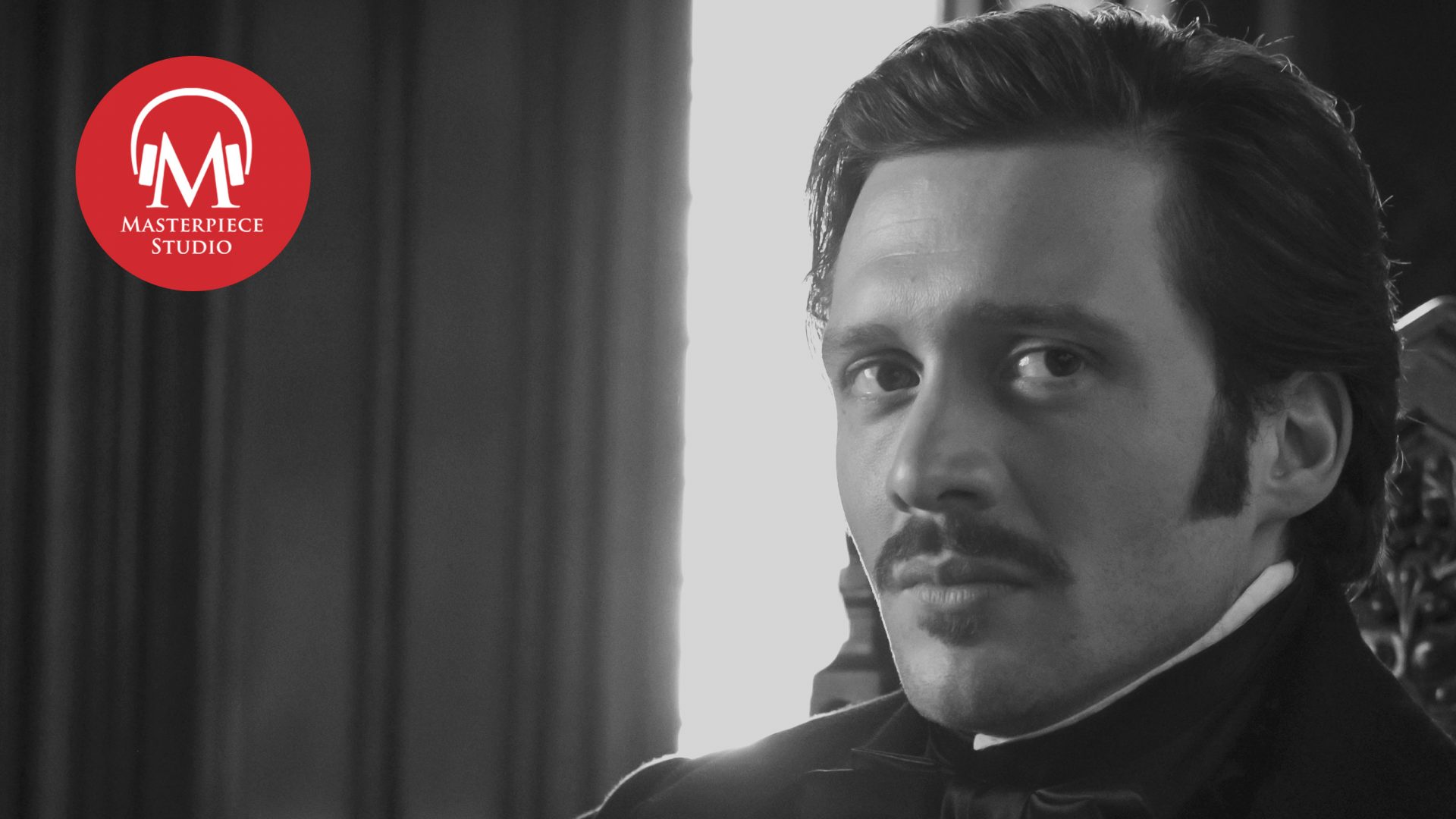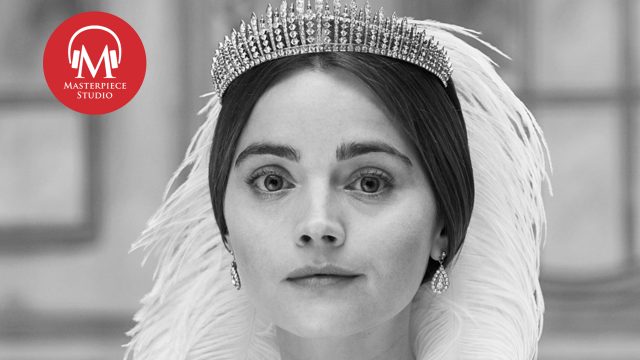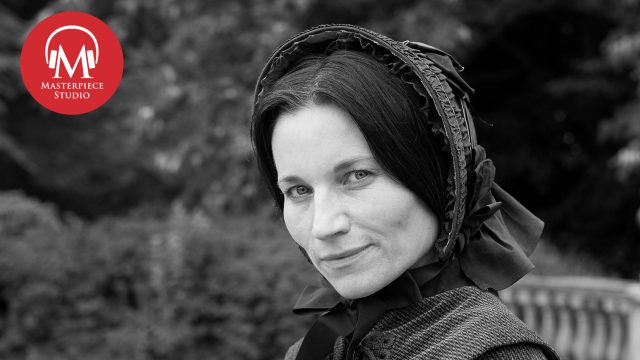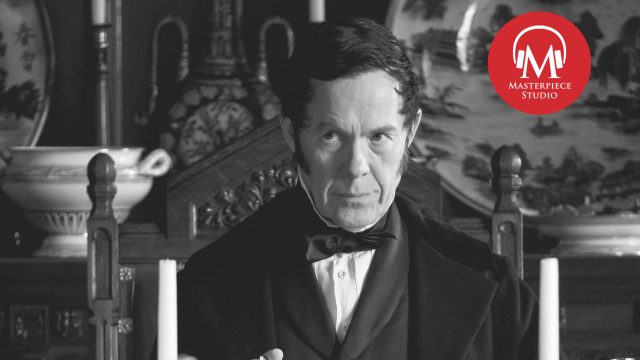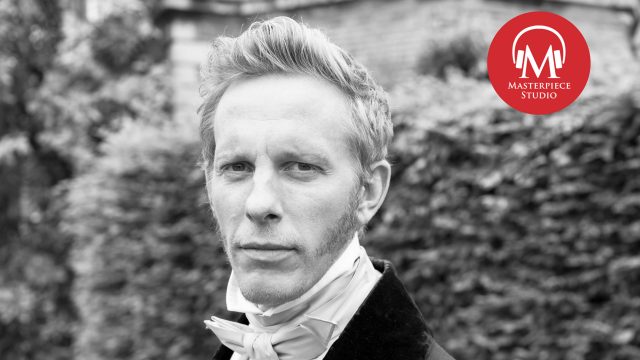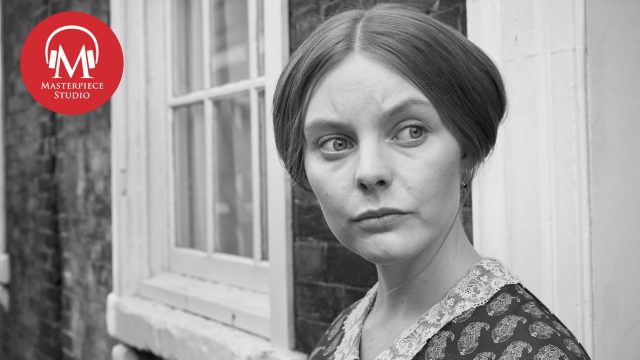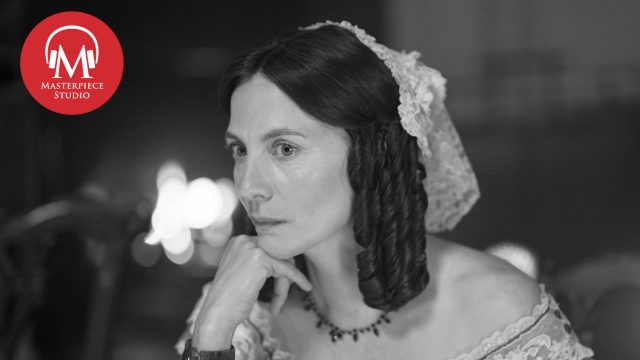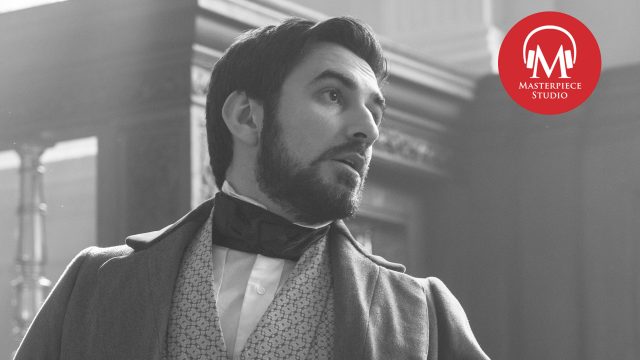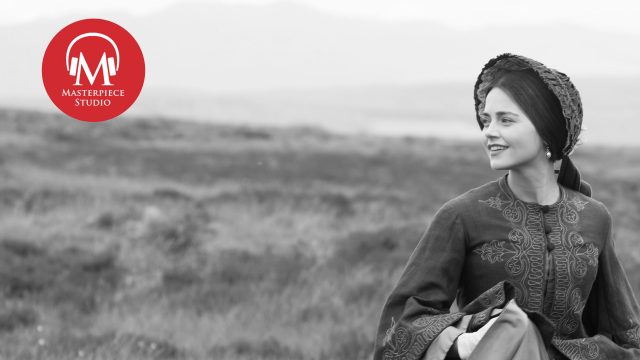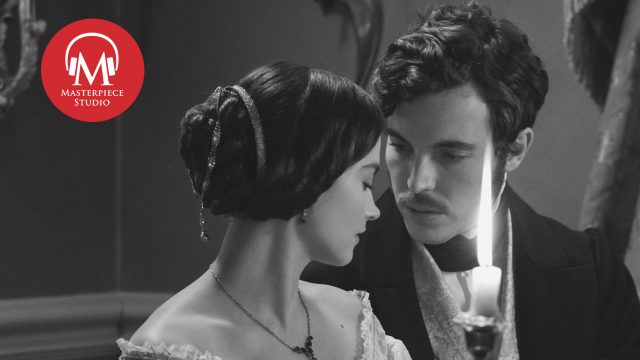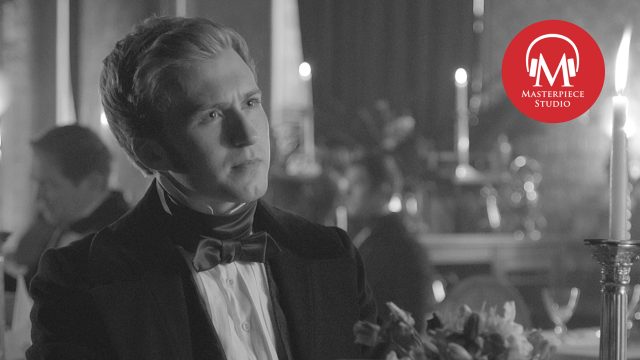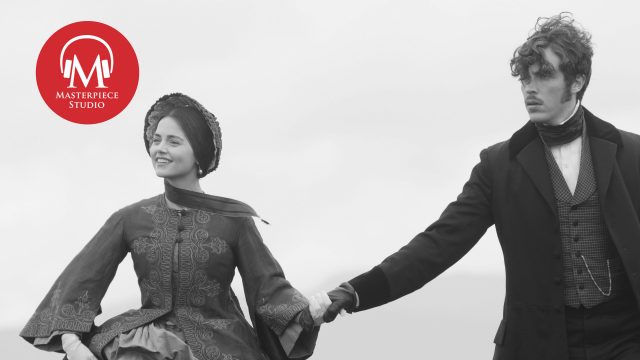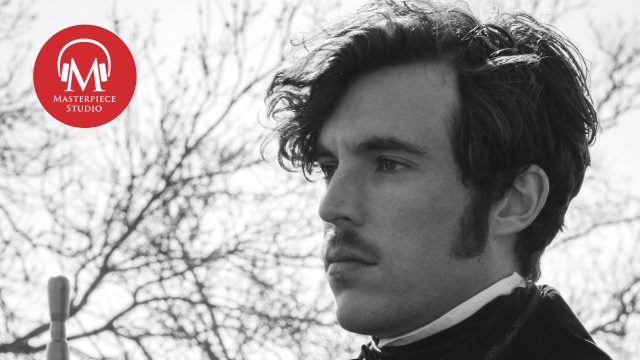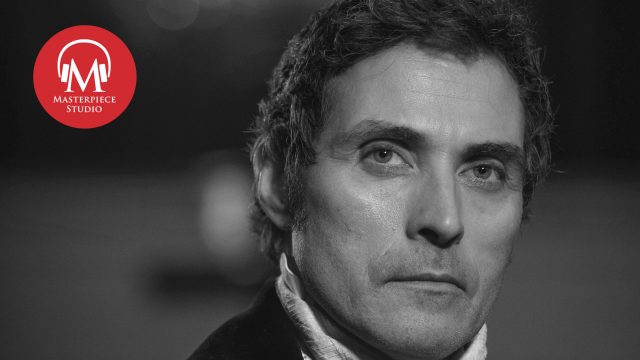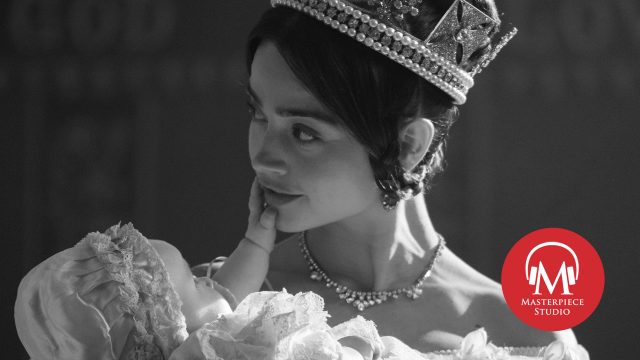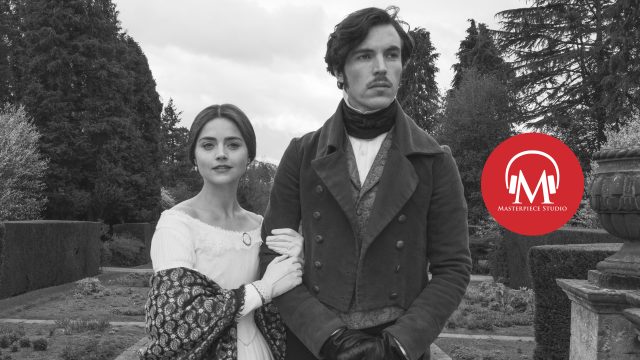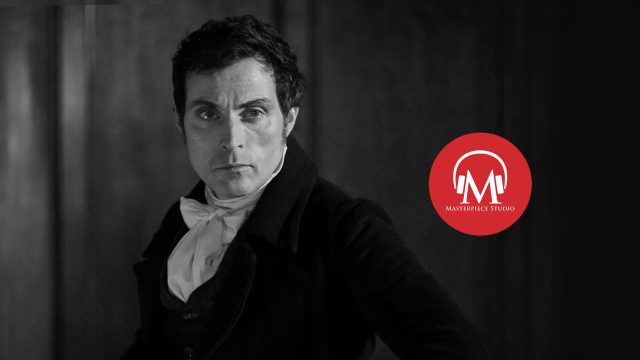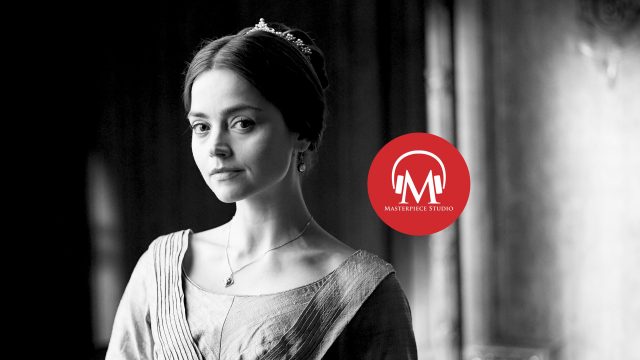Jace Lacob: I’m Jace Lacob, and you’re listening to MASTERPIECE Studio.
While Prince Albert struggles with his role as Queen Victoria’s Prince Consort, his charismatic older brother, the new Duke of Saxe-Coburg and Gotha, swans his way through the courts of Europe. Ernest loves wine, women and music — and though he might be a bit of a rogue and a scoundrel, he’s still a lovable one.
CLIP
Albert: Ernest.
Ernest: Albert.
Albert: Are you alright?
Ernest: Uh, ja. The marquise and I are talking about livestock. She prefers goat’s milk for bathing.
Jace: Much like his late father — who died in the arms of a prostitute — Ernest prefers the more illicit pleasures of royal court life. But lately, the consequences of some of those liaisons have caught up with him.
CLIP
Doctor: It’s most unfortunate of course that the women who carry this disease do not present their symptoms so evidently.
Ernest: Is there a cure?
Doctor: I cannot promise that. But there is a new treatment, that I believe is most efficacious.
Jace: Stricken with syphilis after an encounter with a French courtesan, Ernest nevertheless remains the charming center of attention wherever he roams. The young duke stumbles drunkenly toward maturity in his backhanded pursuit of the Duchess of Sutherland. Actor David Oakes relishes the role.
CLIP
David Oakes: The burden that Ernest has to bear is that no one ever takes any time to listen to his problems and his concerns. And yet he spends all his time trying to make everybody else happy. He’s deeply alone in that world.
Jace: We spoke with Oakes about playing Victoria’s deviously charming Ernest, why the German princes are like Pinocchio and Jiminy Cricket and what’s next for Ernest and Harriet’s seemingly doomed romance.
And we are joined this week by Victoria star David Oakes. Welcome
David: Hello. Nice to be here.
Jace: In Daisy Goodwin’s script for Ernest’s first appearance on Victoria as she describes him as quote, ‘dark and more knowing than his brother Albert.’ What was your first impression with the character when you read the script?
David: Well having known Tom Hughes for about nine and a half, ten years now since we first played lovers, as soon as it said more knowing than Tom, I was all on board. I thought that was a great idea. I came onto the job through a director friend of mine Sandra Goldbacher, who directed episodes four and five for the first season. I’d just done an episode of Endeavour with her and she was very kind enough to give me a call and said, There’s this character he is dark and more knowing than his brother and he’s going to have lots of fun with lots of women at court and get some kind of sexually transmitted disease and so naturally I thought of you.’ And that was two years ago and here I am pox ridden and having fun and all the courts of the country.
Jace: Well I’ve read that the chameleonic Ernest is your favorite of all the characters you’ve played to date. Can you talk about why you’re so enamored with him?
David: He is, he’s fun. I mean that’s the thing with him. Everybody likes him. He’s really charming. He gets to do all the sword fighting and the horse riding and kisses all the prettiest girls. I mean, who else is there to be in this show, really, if you don’t get to do that? I mean he’s fun. That’s it. It’s as simple as that.
Jace: How much research did you do in terms of preparing for the role?
David: I knew a fair bit about Victorian period, not much about Ernest, but I made up for it before we started filming the second season. I flew out to Saxe Coburg to where he governed spent four nights living in a schloss there and went to see his two palaces, at Ehrenberg and Callenberg and yeah got to see where they were and was rather upset to find that Albert has a statue right in the middle of town and Ernest, although he ran the place, has a bigger one but sort of up on the hill outside the park near the Opera House and I kind of feel like that should be changed, because Ernest is cool and Albert’s a bit wet.
Jace: What was the most interesting or surprising thing that you discovered about Ernest?
David: There’s no biography of his life that has been translated into English. There is a reason why it was written that’s only in German which I’ve sort of been trying to bash through. So I’ve sort of been picking up facts about him slowly and trying to sort of draw parts of that across to the show. I think this season because we explore his sexuality and the repercussions that he has had placed upon him through that no one was quite sure whether he had hereditary syphilis, whether or not he had some kind of VD that he passed on to his wife and made her infertile. I think what I like about him is that the muddiness of the historical facts that we have about him make him even more intriguing and also from a drama perspective enables us to sort of reinterpret him much more freely than perhaps Victoria and Albert who we know such a great deal about. He’s an enigma and an enigma in how he behaved in a much greater sense than the others are.
Jace: Now that we’re halfway through this second season, how would you describe Earnest’s arc. Has he changed at all from the carefree playboy we met at the start of the first season?
David: Was he ever a carefree playboy? That’s the question.
Jace: Ah.
David: It’s I think has he changed? His affection for Harriet, I think, has not changed. And I think that’s what’s so charming about him, he’s a man that is prepared to be sexually free with certain French ladies in Louis Philippe’s court but also has an undying love and affection for another woman. He is is both sides of a very sexy coin. That’s ridiculous, but kind of true.
Jace: I mean Harriet has definitely awakened something within him, a sense that he might need to at least grasp at maturity. Has love, or if not love than the deep complexity of a love that can’t be transformed him?
David: I think so. I think that’s certainly the journey that we see over the second season. I think you see a darkness really hitting home. I think one of the favorite scenes that I shot was the one when he’s lying in wild garlic just staring up into the sky reminiscent of the poster from Boyhood. It’s that moment where you have a man coping with the disease that he has got, realizing that the love of his life is now available and that the universe seems to be conspiring against him at every turn despite having the best intentions and not being allowed to act on them in the past. From here on in it’s there’s a certain amount of suffering that Earnest has to endure and whether it ends up happening or after you will just have to wait and see wait and see.
Jace: I’m glad you mentioned this scene in the woods where he lies among the flowers.
CLIP
Albert: Ernest, I do not know if you are aware, but Harriet Sutherland’s husband has died.
Ernest: I did not know that.
Albert: He broke his neck whilst hunting.
Ernest: Poor Harriet.
Albert: Victoria would like her to return to court, I think perhaps it is too soon, what do you think?
Jace: It’s to me….
David: It’s lovely, isn’t it?
Jace: …one of the most beautiful scenes in the entire season if not the show. You likened it to the poster from Boyhood but what emotion did you try to evoke in that scene?
David: It’s not one emotion it’s it’s that it’s it’s one of those moments. I think this is when drama is really good is when you see characters discover life shattering information. He is he’s there holding the secret of his disease he’s there confronted with the fact that the woman he loves is not only now available but was also probably hurting in a way she’s never hurt before. He’s perplexed he is baffled he doesn’t know how to respond and his brother is they’re still just harping on about Victoria being a bit moody that day and eating another hairbrush. It’s that sort of the burden that Ernest has to bear is that no one ever takes any time to listen to his problems and his concerns. And yet he spends all his time trying to make everybody else happy. He’s deeply alone in that world and never more so than in that moment in the wild garlic.
Jace: You’ve likened the relationship between Ernest and Albert to the dynamic between Pinocchio and Jiminy Cricket.
David: Yeah I did.
Jace: Can you explain what you mean by this?
David: Well Pinocchio goes through life doing what he wants to do making mistakes and Jiminy Cricket is there on his shoulder saying, ‘Oh Pinocchio, you shouldn’t have done that. Ernest is very much Albert’s conscience. It’s the person that Albert turns to when he has doubts and concerns and at least in episode three of this series I was dressed all in green. So there you go. They’ve got loads of similarities.
Jace: One brother seems to embody excess and almost bacchanalia, while the other is austere an almost aesthetic. Why are these two brothers so different do you feel?
David: Well I think Daisy has liked to explore the paternal differences that they have. I think often when you grow up close to a sibling you define yourself by what they are and fill in the gaps that they might leave behind. I think Ernest and his father also Ernest was so similar that Albert became more recluse. I think it’s dramatically interesting. I think it’s as simple as that. I think if I was alive in the Victorian time and I was a member of a royal dynasty I’m almost certain I would be more like Ernest it would be such a waste not to be wouldn’t it?
Jace: The rapport between Ernest and Albert feels very lived in and authentic. You mentioned you previously worked with Tom Hughes on Trinity. What is it like working with Tom in playing brothers here?
David: I think we both work in completely different ways as actors and I think the fact that the characters are different means that that sort of antagonism actually sort of plays out quite nicely on screen. He’s I mean he’s not method but he sort of goes down that deep indulgent, sort of darkness that I think Albert sort of festers in that sort of world. But then is also very precise with how he does it so he makes a decision and then sort of sticks to it relatively rigidly. I quite like to be a little bit more bacchanalian to use your world word and sort of try and sort of dance around that and it’s an interesting one. It would be nice to work with them again on a different subject we were playing different kinds of characters to see whether or not we were still work with that dynamic. I mean when we did Trinity it was it was his first television job it was my second television job and the manner in which we worked then was so different to the actors that we’ve become now.
Jace: Next you need to play antagonists.
David: Yeah well I mean.
Jace: Lovers, then brothers, then….you know
David: Something else that rhymes a bit with others.
Jace: Before this next question, a brief word from our sponsors…
Masterpiece Studio is brought to you by Viking. Explore the world in comfort, by river and sea. Learn more at vikingcruises.com.
Jace: Ernest and Lady Sutherland began their complicated pas de deux last season. What is it about the two of them do you feel that has captivated the imagination of viewers in the way that it has?
David: Well it’s Margaret Clunie’s hair, obviously.
Jace: That’s a big part of it.
David: It’s a huge part of it. I mean she did a show where she was bald once and people just turned off straight away. I mean again Margaret it’s a funny one because I’d worked with her before as well. That’s what would have been really fun about this job is the two characters that I relate with most in the show are two actors that I’ve worked with before. Margaret was on Endeavour with me. I think Margaret and I get on really well as friends. We’ve been friends for three four years now four and a half years and I think because you have that sort of shorthand of friendship and you respect each other’s acting abilities you actually get to play on screen and I think I think the audience can see that and I think that, I think that sort of pays huge dividends, really.
Jace: One of my favorite of the scenes that you have with Margaret Clunie is when Ernest and Harriet dance together at the costume ball.
CLIP
Ernest: May I write you, please?
Harriet: There’s no point.
Ernest: Then why are you dancing with me?
Harriet: Because I cannot forget.
Jace: Do you feel that that scene captured that sense of a frustrated longing and thwarted desire between the two of them?
David: I think it did I think. I think that’s what’s also funny about all of those balls is these were rare occasions when. Men and women who were either not married or not married to each other were allowed to interact and that’s that’s as sexy as the past really got in sort of proper sort of formal occasions. I mean that’s what’s that’s the joy of Jane Austen is every time you have a ball it’s not like oh here’s another fusty ball with corsets and prancing around in square quadrilles, and blah blah blah. It’s the moment where you get to flirt, and the great thing is back then as you get your dance card and you write down the list of people and so you know when the slow dance was coming and you knew when the sort of slightly sexy raunchy bit where you get to hold the hand was coming so you choose the right partner for that, and you know, it’s, it’s naughty. It’s as racy as you were supposed to get in public. And I think I think that scene is really nice. The fact they find those stolen moments within that dance to to whisper sweet nothings in each other’s directions.
Jace: Ernest joins Victoria and Albert in France. But while they are contending with Louis Philippe’s plans for the young Spanish Queen, Ernest gets up to shall we say, his usual tricks. It’s here that he contracts syphilis. How does the condition shake the foundations of Ernest’s world?
David: I think when he’s in France he is coping with a despair. And a real so he’s done he’s just become the Duke. So his father’s just died so he’s coping with the death of his father the responsibility of having his own throne and kingdom to govern. He’s still coping with the fact that Albert thinks it’s all about him despite the fact that all that happened to Albert was he lost his dad and didn’t have to take the responsibility of a throne. And I think if we meet him in Paris having drunk a lot, having partied quite a bit and whether or not it’s that particular woman that gave him his minor qualms they’re certainly probably a few women that he has met along the way that could have transmitted that little joy in his pants.
Jace: I mean given his prevalence for partying I’d be surprised that this is the first sexually transmitted disease that Earnest’s has contracted.
David: Yeah.
Jace: Why is this one’s so specifically different for him? Or is it just the timing.
David: I think it’s the timing with the loss of Harriett’s husband, with the Duke of Sutherland. I mean certainly Leopold was having courtesans on the side there, Albert and his father was, in real life Albert had an incredibly healthy sex drive with Victoria and who knows whether or not it was stated elsewhere. These are secrets that will be held by history for all time so I don’t know. I mean why this one. It’s timing and the fact that Daisy wrote it.
Jace: Among the potential treatments prescribed for poor Ernest is a steam room full of mercury vapor.
David: Yeah.
Jace: Which must have been ghastly. What went through your head when you were filming this scene?
David: Yeah it was a it was a funny scene, it was really cold day. We filmed it in a Wentworth woodhouse near Sheffield, and is sort of in the cellar, the stone cellar and it was really, really cold and they kept on spraying me down with water to try and make me look like I was sweating, and all I could think about was the last time we were there in season one, we did the sword fight and we got Pizza Hut takeaway at lunch time. So it’s an interesting thing, you’re there you’re cold, you’re shivering, you’re wet, you’re trying to hide your gut — and all you can think about a stuffed crust.
Jace: Harriet’s husband has died after breaking his neck during a hunting accident. This would seem to clear a path for Ernest but it seems from Ernest’s expression at the doctor’s surgery that there is no future for them. Is true heartbreak a new experience for Ernest?
David: Most certainly yes it’s as simple as that. And I think heartbreak is something that should never be underestimated that you should hope never to have thrust upon you and certainly shouldn’t ever have it thrust upon you more than once. Yeah it’s it’s a very dark thing. So yeah as to where where his relationship with Harriet goes not wanting to say anything more about the rest of this series but it’s got a long way to go yeah. Yeah. They have a hell of a ride to Harriet and Ernest.
Jace: Ernest was previously a capital R romantic figure given this new complication do you see him as more of a tragic figure?
David: Yes. And I think even more tragic figure by design because he maintains his veneer. He keeps being Albert’s confidante and he keeps providing strength to Harriet as much as he can and won’t allow the reality of his condition to ruin his life. And when he realizes that it is going to be a barrier, he does the noble thing. Yeah,it’s tragedy. It’s a grand narrative of despair and tragedy. It’s a great bit of depressing Sunday night drama but at least everybody else is happy. So that’s all right.
Jace: David Oakes, thank you so much.
David: My absolute pleasure. Thank you for talking to me and tolerating my nonsense.
Jace: And now, Victoria creator Daisy Goodwin joins us for a look at the real life afflictions and affections of Prince Ernest. Now this episode has a personal connection to you as Dr. Traill was your great great great grandfather. Is that correct?
Daisy: That is correct, yes. I mean it’s so interesting because this is the one part of history I was really determined to get into the series because I’d written a book about my Irish family and I discovered the story of Dr. Traill, which was, to me a revelation, because even though I’d studied history and very little about Ireland and almost nothing about the potato famine. And when I went over there to Schull, where he lived, I discovered his diary, and it was the most extraordinary thing to find that this man who was sort of distantly related to me had he been a very rabid evangelical Protestant and he had thought that Catholics were little more than heathen and had almost nothing to do with them up until the first signs of famine. A lot of the language I used in that episode by Trevelyan and by Peel was actually words I took from contemporary documents so it’s extraordinarily accurate in you know you think I’m making the British government into hardhearted villains.You know they were probably more hardhearted than I make them so it was such an extraordinary story so I wanted to use Traill to really show the humanity of one man who had been part of this Protestant establishment who realizes that, you know, what they are doing is completely wrong. And he sacrifices his career, and in the end his his family, and also his life to do the right thing. And he turns his rectory and into a soup kitchen, and in the end he actually dies of famine fever. And after he dies, the Church of Ireland, which is the Protestant orthodoxy in Ireland, sues his widow for the damage done to the rectory by creating it into a soup kitchen.
Jace: That’s vile.
Daisy: It’s a vile story. I mean it’s it’s such an extraordinary story and of course I was hugely relieved in a sense that when I read about history story to realise that actually he was somebody who’d done the right thing, because it would have been awful to discover that he had been on the side of the awful Protestant people who were prepared to let the Catholic peasantry starve to death because it was convenient.
Jace: I mean clearly, you know, we should see him as a true hero. Do you hope that this will shine a light on what Dr Traill actually did, and as you say sacrificed, during this this time?
Daisy: I mean certainly in England I think a lot of people when it went people were astonished because I think nobody really learns about the Potato Famine in Britain because I don’t know it’s not really taught. You can imagine why because it’s this terrible genocide that basically happens in the country next door, and it’s our fault, you know, we did nothing to help. Certainly when the program went up people were embarrassed and ashamed to realise how badly we had behaved.
Jace: Given the situation in Ireland, why was so much grain being shipped to England?
Daisy: Well it’s it’s quite complicated but basically what was happening was that you know the Irish peasantry lived on potatoes but most of the land was in the hands of Protestant landowners who grew wheat and they found that they could get very high prices for their wheat in London because of something called the Corn Laws, which was basically a tariff, which meant that corn you know you couldn’t import corn till domestic corn got to a certain level so I don’t know you know six shillings a bushel or whatever it was which meant that you know that kept the price of bread really high at a time when you know people were starving. So you’ve got all these people living in industrial cities like Manchester and Birmingham places like that who aren’t living off the land who don’t have you know a patch where they can grow potatoes or keep a pig or something so they are dependent on on buying food. And yet the system is rigged to benefit the landowners who were growing the wheat and the corn so. So they will have perpetually high prices and that’s why Robert Peel at the end of the day at the end of the famine episode says he’s got to repeal the Corn Laws because he knows that the only just thing to do is to get rid of this tariff which basically makes bread incredibly expensive for everybody only benefits the rich, landowning class.
Jace: Fact or fiction: Did Ernest have syphilis?
Daisy: Now that’s fact. It’s very sad. Ernest did have syphilis. He was somebody who I think, you know, had had purple patches where he probably consorted with prostitutes. And I think that he contracted syphilis.
Although he outlived his brother Albert, I mean syphilis wasn’t fatal but it obviously had terrible effects. And as we see in the show, I mean its real issue was that if you gave it if you got married and you had another attack you could infect your partner. And a lot of Victorian men didn’t really worry about that they’d just carried on and you know infected their partners, you know, didn’t really care about it. But I was trying to show that Ernest, you know, when it comes to Harriet, he is a man of honor. Even though he loves her and wants and wants to more than anything to marry her he knows that by doing so, he could have handed her a death sentence. So it’s a really Victorian dilemma this, and one that I found really interesting. And and poor man, I mean, it must have been awful for him.
Jace: I mean he’s for force in a steam rooms full of mercury vapor.Was this a traditional method of treatment. And what were the side effects of such a monstrous course?
Daisy: I talked to a historian of sexually transmitted diseases in the 9th century and I knew mercury was the treatment, but actually she said you know the really effective thing was mercury vapor, which is sort of yellow steam which I thought was extraordinary, and I mean that made for a very good scene, you know, I thought, ‘Oh how cinematic!’ I think it was horrible I think Mercury would give people terrible headaches it could turn their skin yellow. And I think it was almost as toxic as syphilis. I think it probably did have some remedial effects but it wasn’t a cure by any means. I was trying to show one of the kind of downsides of Victorian life that here were men having unprotected sex and women were always blamed because you knew when a man had syphilis, but you couldn’t always tell when a woman had syphilis. And women were always considered the guilty parties in this.
Jace: Fact or fiction: Harriet Sutherland’s husband died from a hunting accident?
Daisy: Well I’m afraid that’s fiction again.But in order to to show in order to illustrate Ernest’s dilemma I had to put Harriet in a position where she would be able to marry him, because otherwise it would be too complicated. But I thought this would be a way of illustrating it and also of course I wanted her to feel guilty because she felt responsible for her husband’s accident. In reality, they were very happily married and lived very happily at Clifton in Royal Barkshire.
Jace: And he died when he was 75 from an illness.
Daisy: He did, I’m afraid I’ve taken a few liberties there. But Harriet was very beautiful and looks strangely like the actress Margaret Clunie who plays her in the series.
Jace: Fact or fiction: was the sewage system quite this dire in Buckingham Palace?
Daisy: Yes that’s completely true. Buckingham Palace was literally a health hazard. People used to go there and just literally walk around going, ‘Oh, what’s that smell?’ The kitchens had, you know, was so unhygienic that you know if it rained you couldn’t use various rooms because there was this sort of seepage of sewage across the floor and stuff. So it was it was deeply, deeply rank I would say, the downstairs part of Buckingham Palace, and even upstairs I think that some of the state rooms would quite often smell rather ripe And you can imagine. There’s sewage, there’s a lot of unwashed bodies you know people didn’t have so many baths you know all those guttering candles it must have been quite quite a sort of smell awful actually.I think the sewage situation was terrible. Albert of course being a man who thinks practically decides to sort it out and you know he invites Chadwick who’s the commissioner of sanitation in London and Chadwick’s you know saying how awful the sewage situation is in London because basically people were just throwing their sewage into the streets into the into sort of into streams which all the River Thames. And one of the streams which I think is called the Tiben Spring actually flowed underneath Buckingham Palace so that’s you’ve basically got a river of sewage flowing underneath the palace. So that’s why Albert decides to sort it out. And he did indeed install flushing lavatories throughout Buckingham Palace and was true to his ideals of democracy, he installs a lavatory downstairs in the servant’s quarters, which is entirely to his credit.
Jace: Queen Victoria remains the ruler of the United Kingdom of Great Britain and Ireland. That kingdom includes Scotland, and next week, for the first time, the young Queen and her Prince Consort head north to the sweeping Scottish Highlands.
CLIP
Jenna Coleman: I think it’s, it’s Wow, who would we be if we weren’t who we are. A life without duty and a freedom in that….that’s it’s the imagining like, wow what if this was really my life who would I be? And you can get lost in that make believe, and lost in that story, that they live just for the night.
Jace: Don’t miss our special exploration of Queen Victoria’s trip to Scotland in an upcoming episode of MASTERPIECE Studio, appearing in your podcast feeds next Sunday.
The VICTORIA Sweepstakes is happening now through March 15, 2018! Enter daily at pbs.org/sweepstakes for a chance to win the Grand Prize, a Viking Ocean cruise for two adults in the British Isles. You may also win monthly prizes of VICTORIA merchandise. For Official Rules, including eligibility restrictions and prize limitations, visit pbs.org/sweepstakes. Void where prohibited.
MASTERPIECE Studio is hosted by me, Jace Lacob and produced by Nick Andersen. Elisheba Ittoop is our editor. Susanne Simpson is our executive producer. The executive producer of MASTERPIECE is Rebecca Eaton.








